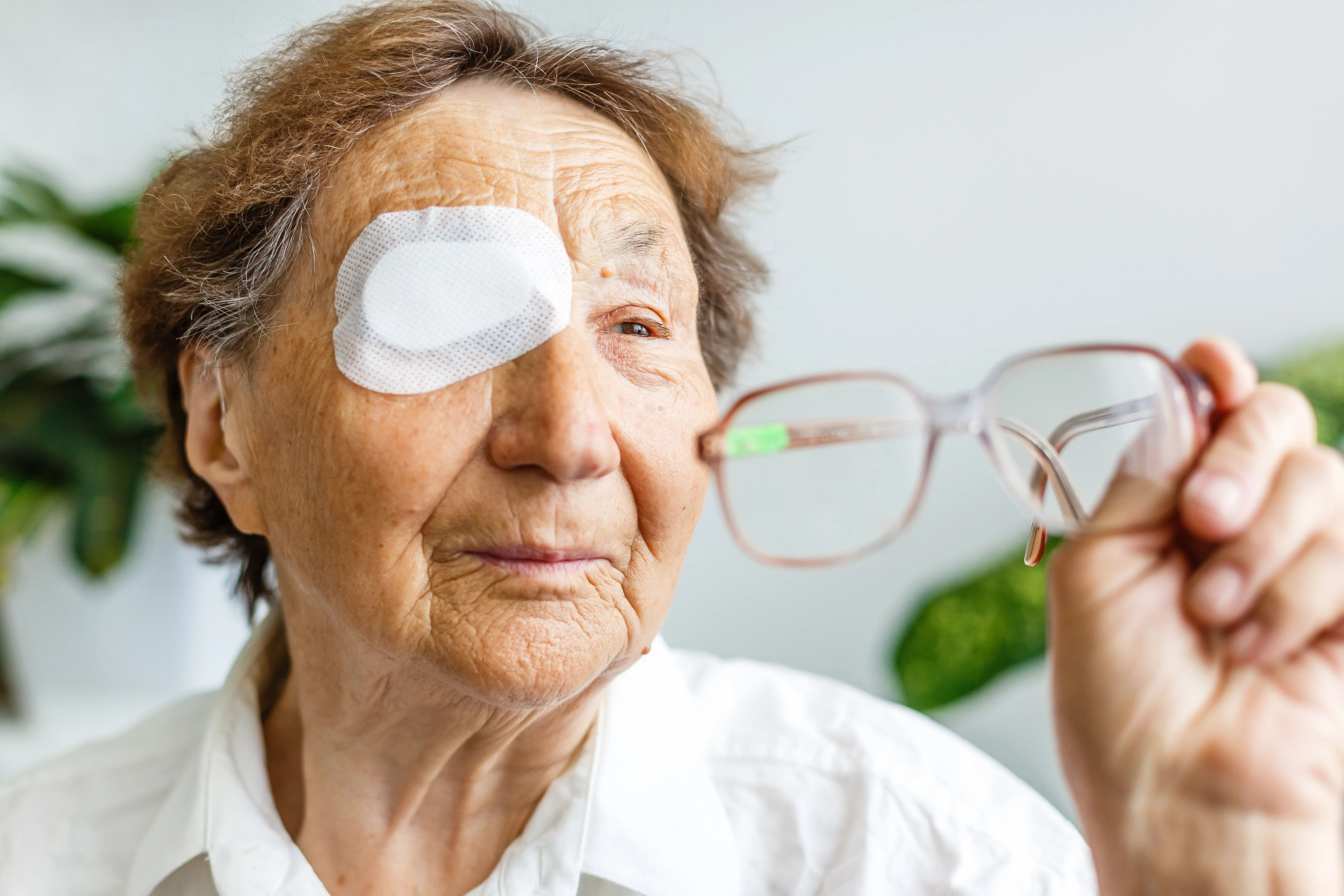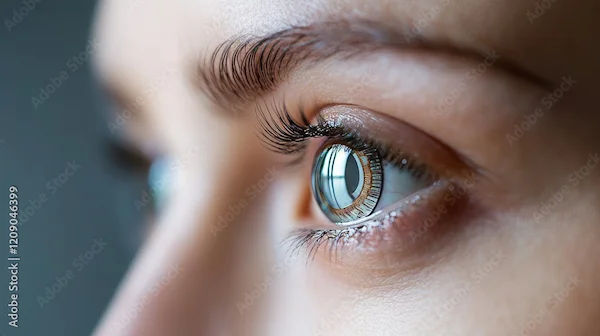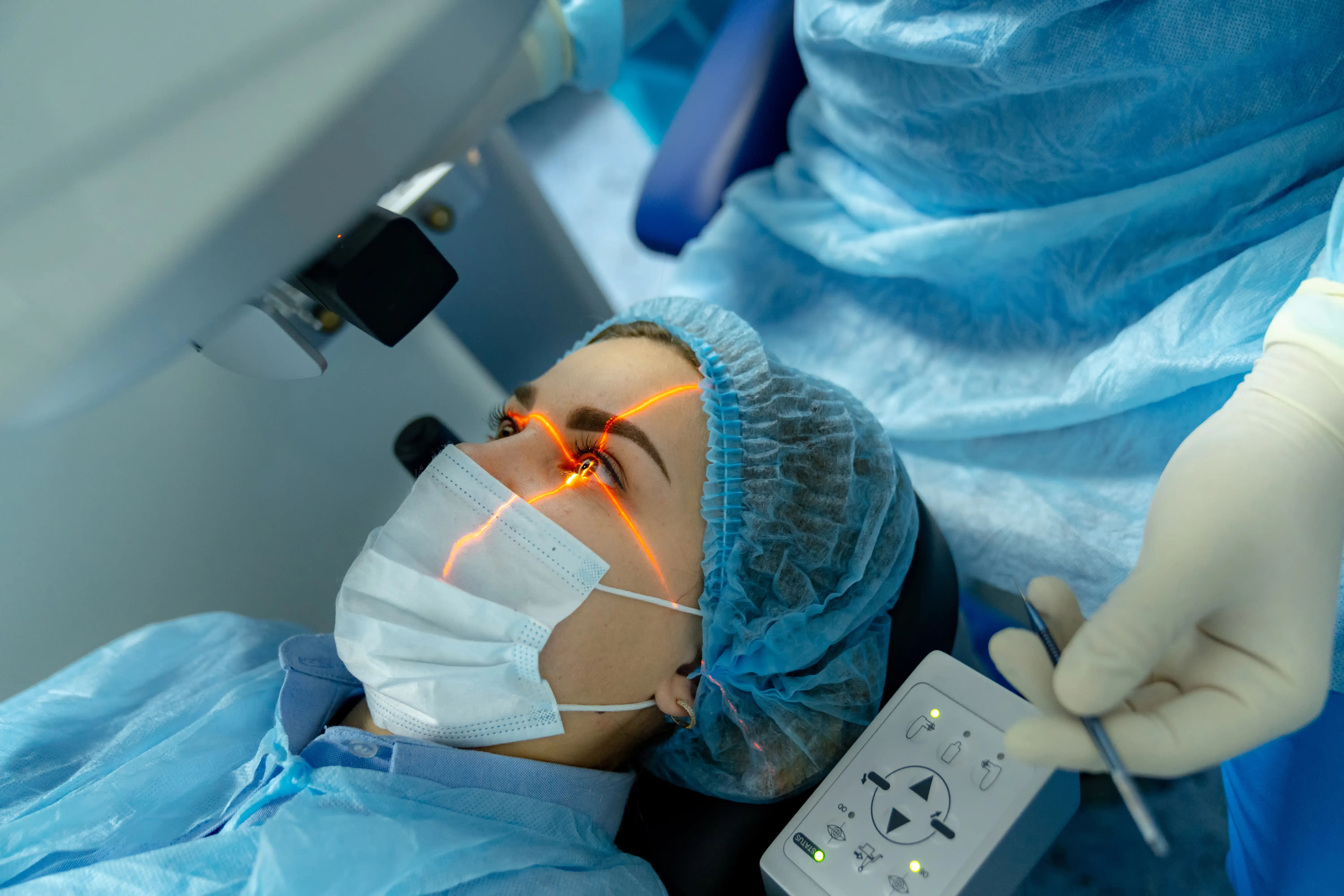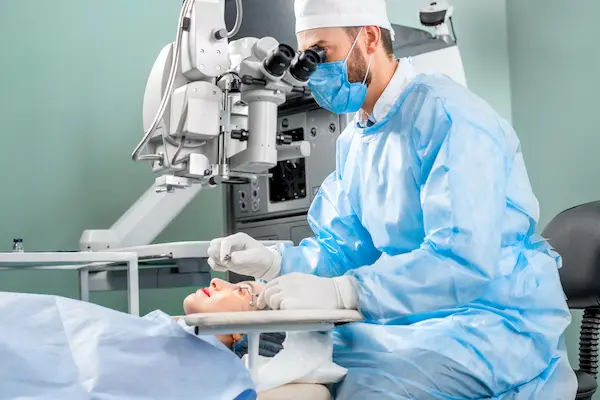What Is The Difference Between Cataract Surgery And Laser Surgery?
Understand the core differences between cataract surgery and laser eye surgery (e.g., LASIK). Learn what each procedure corrects, how they're performed, and which is right for your specific vision issues.

Written by Dr.Sonia Bhatt
Last updated on 13th Jan, 2026

Introduction
If you or a loved one is experiencing vision problems, you may have heard about cataract surgery and laser surgery. While both aim to improve vision, they are different procedures meant for different eye conditions. This article will help you understand the key differences between the two, their benefits, and what to expect.
What Is Cataract Surgery?
A cataract is a clouding of the eye's natural lens, which leads to blurry vision, difficulty seeing at night, and faded colors. Cataract surgery is a common and safe procedure to remove this cloudy lens and replace it with an artificial one (called an intraocular lens or IOL).
How Is Cataract Surgery Performed?
The way cataract surgery is performed is:
Traditional Cataract Surgery (Phacoemulsification):
A small incision is made in the cornea.
An ultrasound probe breaks the cloudy lens into small pieces, which are then removed.
A clear artificial lens is placed in the eye.
LaserAssisted Cataract Surgery:
A laser is used to make precise incisions and soften the cataract before removal.
The rest of the procedure is similar to traditional surgery.
Who Needs Cataract Surgery?
People with significant vision loss due to cataracts.
Those who struggle with daily activities like reading or driving.
Recovery After Cataract Surgery
Most people recover within a few days to weeks.
Avoid rubbing the eye and follow your doctor’s instructions for eye drops.
What Is Laser Eye Surgery?
Laser eye surgery (like LASIK or PRK) is used to correct refractive errors such as:
Nearsightedness (Myopia) – Difficulty seeing distant objects.
Farsightedness (Hyperopia) – Difficulty seeing close objects.
Astigmatism – Blurred vision due to an irregularly shaped cornea.
Unlike cataract surgery, laser surgery does not remove the eye’s natural lens. Instead, it reshapes the cornea to improve how light enters the eye.
How Is Laser Eye Surgery Performed?
LASIK: A thin flap is created on the cornea, and a laser reshapes the underlying tissue.
PRK: The outer layer of the cornea is removed, and a laser reshapes the cornea directly.
Who Is a Good Candidate for Laser Surgery?
People with stable vision (no major changes in prescription for at least a year).
Those with healthy corneas and no severe dry eye issues.
Recovery After Laser Surgery
Vision improves within 24-48 hours (LASIK) or a few days (PRK).
Avoid strenuous activities and wear protective eyewear as advised.
Consult Top Specialists for Personalised Tips
Key Differences Between Cataract Surgery and Laser Surgery
Key differences between cataract surgery and laser surgery are:
| Feature | Cataract Surgery | Laser Eye Surgery |
|------------|------------------------|---------------------------|
| Purpose | Removes cloudy lens (cataract) | Corrects refractive errors (nearsightedness, farsightedness, astigmatism) |
| Lens Replacement | Yes (artificial lens implanted) | No (cornea is reshaped) |
| Best For | Older adults with cataracts | Younger adults with stable vision problems |
| Recovery Time | Few days to weeks | 12 days (LASIK), few days (PRK) |
Which One Do You Need?
If you have blurry vision due to a cloudy lens (cataract), cataract surgery is the right choice.
If you wear glasses or contacts for nearsightedness/farsightedness, laser surgery may help reduce dependency on them.
Your eye doctor can help determine the best option based on your eye health and vision needs.
Tips for Healthy Vision
Whether you undergo cataract surgery or laser surgery, maintaining good eye health is essential:
Eat a balanced diet (rich in leafy greens, fish, and vitamin C).
Wear sunglasses to protect against UV rays.
Avoid smoking, as it increases the risk of cataracts.
Get regular eye checkups, especially after age 40.
When to See a Doctor
If you experience:
Sudden vision loss
Severe eye pain
Flashes of light or floaters
If you're unsure about which procedure is right for you, consult an eye specialist. You can book an appointment with Apollo 24|7 for a comprehensive eye exam and personalized treatment plan.
Final Thoughts
Both cataract surgery and laser surgery are effective ways to improve vision, but they serve different purposes. Understanding the difference helps you make an informed decision about your eye care. Always consult an ophthalmologist to determine the best treatment for your specific needs.
Consult Top Eye Surgeon
Consult Top Specialists for Personalised Tips
Dr. Padmini S
Ophthalmologist
4 Years • MBBS,MS
Bengaluru
Apollo Medical Center, Marathahalli, Bengaluru

Dr. Karan Paswan
Ophthalmologist
7 Years • MBBS,MS (Ophthalmology)
Kolkata
VDC Clinic, Kolkata
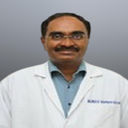
Dr. K Sreekumar Reddy
Ophthalmologist
26 Years • MBBS MD (Ophthalmology) EGESTOLP
Hyderabad
Apollo Hospitals Jubilee Hills, Hyderabad
(50+ Patients)
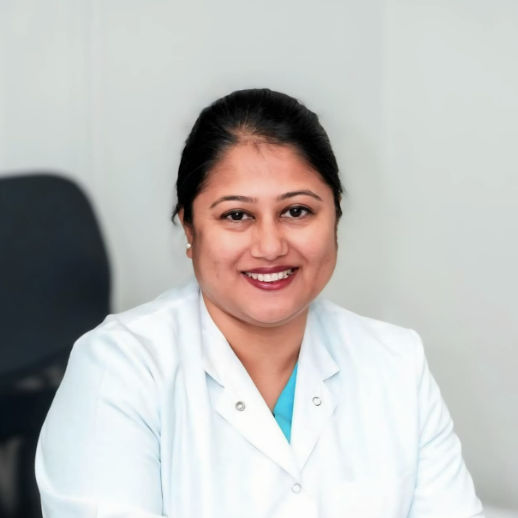
Dr. Zennat Tajmin Shah
Ophthalmologist
24 Years • MBBS,DNB (Ophthalmology)
Kolkata
Titanium Eye Care, Kolkata
Dr Kanse Vaibhav
Ophthalmologist
10 Years • MBBS, DO, MS, DNB
Pune
Apollo Clinic, Nigdi, Pune
Consult Top Eye Surgeon
Dr. Padmini S
Ophthalmologist
4 Years • MBBS,MS
Bengaluru
Apollo Medical Center, Marathahalli, Bengaluru

Dr. Karan Paswan
Ophthalmologist
7 Years • MBBS,MS (Ophthalmology)
Kolkata
VDC Clinic, Kolkata

Dr. K Sreekumar Reddy
Ophthalmologist
26 Years • MBBS MD (Ophthalmology) EGESTOLP
Hyderabad
Apollo Hospitals Jubilee Hills, Hyderabad
(50+ Patients)

Dr. Zennat Tajmin Shah
Ophthalmologist
24 Years • MBBS,DNB (Ophthalmology)
Kolkata
Titanium Eye Care, Kolkata
Dr Kanse Vaibhav
Ophthalmologist
10 Years • MBBS, DO, MS, DNB
Pune
Apollo Clinic, Nigdi, Pune
